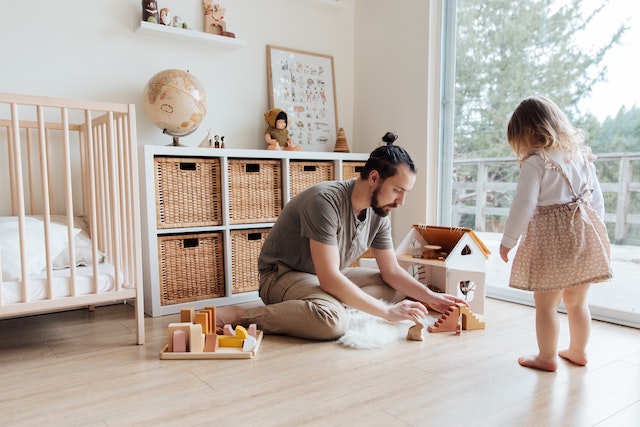Comments
- No comments found

The challenges faced by children with Attention Deficit Hyperactivity Disorder (ADHD) are increasingly prevalent.
ADHD is a neurodevelopmental disorder that affects a child's ability to focus, control impulses, and manage their energy levels.
While ADHD presents unique challenges, with the right strategies, parents and educators can help children thrive academically and personally.
Here are 14 strategies that can help you explore effective approaches to educate and parent children with ADHD, this will help them unlock their full potential.

Early intervention is crucial when dealing with ADHD. Parents and educators should stay vigilant for signs of ADHD, such as inattentiveness, impulsivity, and hyperactivity. Collaborate with healthcare professionals for a timely and accurate diagnosis. Once diagnosed, a tailored plan can be developed to address the child's specific needs.
Every child with ADHD is unique, and their educational needs vary. Schools should develop Individualized Education Plans (IEPs) that consider the child's strengths, weaknesses, and learning style. These plans can include classroom accommodations, specialized instruction, and targeted support.
Children with ADHD benefit from structured and organized learning environments. Teachers and parents should establish clear routines, use visual schedules, and minimize distractions. A predictable routine helps children stay focused and reduces anxiety.

Interactive and engaging teaching methods capture the attention of children with ADHD. Educators can incorporate hands-on activities, technology, and multisensory approaches to make learning more exciting and effective. Encourage active participation to maintain interest.
Fostering a supportive and inclusive classroom atmosphere is essential. Encourage peer support and teach classmates about ADHD to reduce stigma. Open communication channels allow children to express their feelings and needs without fear of judgment.
Children with ADHD often struggle with time management and organization. Teach them practical skills, such as using calendars, planners, or digital tools, to manage their assignments and tasks. Consistency in time management techniques helps build self-discipline.
In some cases, medication prescribed by a healthcare professional may be part of the treatment plan. Parents and educators should work together to ensure proper medication management, including monitoring effectiveness, side effects, and adherence.

Positive reinforcement and behavior modification techniques are powerful tools when educating and parenting children with ADHD. Reward good behavior and provide clear consequences for undesirable actions. Consistency is key to reinforcing positive habits.
Physical activity has a remarkable impact on children with ADHD. Encourage regular exercise, as it helps release excess energy and improves focus. Activities like sports, yoga, and dance can be enjoyable outlets.
Diet plays a role in managing ADHD symptoms. Explore dietary adjustments, such as reducing sugar and processed foods, and increasing foods rich in omega-3 fatty acids and antioxidants. Consult with a healthcare professional or nutritionist for guidance.
Teaching mindfulness techniques can help children with ADHD manage stress and impulsivity. Techniques like deep breathing, meditation, and yoga can promote self-awareness and emotional regulation.
Parents play a crucial role in their child's journey with ADHD. Seek support from mental health professionals, support groups, or counseling to learn effective parenting strategies. Maintain open communication and offer unconditional love and acceptance.

Educating and parenting children with ADHD requires dedication, patience, and a multifaceted approach. By identifying their unique needs, providing a supportive environment, and implementing effective strategies, we can empower these children to excel academically and lead fulfilling lives. With the right guidance and support, children with ADHD can harness their incredible potential and contribute meaningfully to society.
Riddhi Doshi trains and coaches corporate leaders, educators and parents on issues of mental health and behavior. She is an internationally certified Parenting & Behaviour Coach. In past 15+ years she has conducted 2540+ open workshops, delivered 87000+ hours of talks, 53000+ hours of counseling sessions covering 59000+ students and 62,000+ women from various fields. Parenting sessions conducted by Riddhi are housefull and recent;y she completed her 366th Parenting session. She has been a speaker and advisor at various institutions and organizations including IIM, Ahmedabad, Rotary Club, Tata Power, Larson & Toubro and The Time of India. She holds an MBA in HRD, LLM and numerous other professional certifications from prestigious international institutions including University of Cambridge, BSY University, London, City & Guilds, London, Tata Institute of Social Sciences and NMIMS, Mumbai. She has been awarded with “National Award for Cultural Activities by AVANTIKA- Delhi”, “Excellence in Wellness”, “Young Entrepreneurs Award”, “Self Made Diva Award” among various others. With a mission to “make corporate leaders, educators and parents empowered and more aware about mental health & wellness”, Riddhi regularly gives interviews on leading media platforms. She loves to interact with corporate leaders, educators and parents to discuss about women issues, child psychology and parenting challenges.
Leave your comments
Post comment as a guest